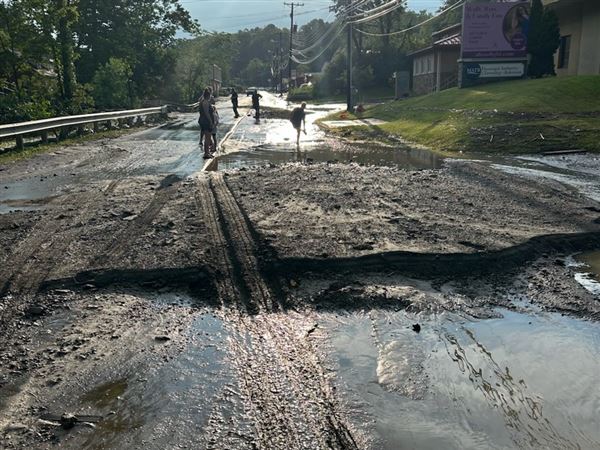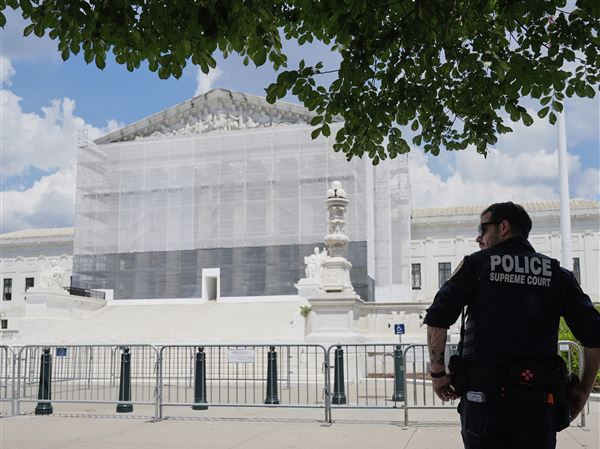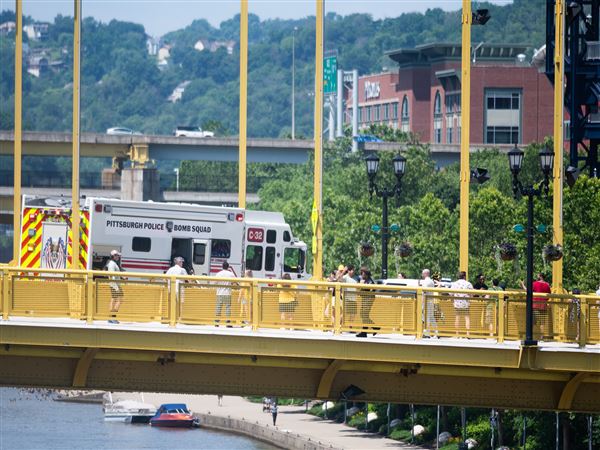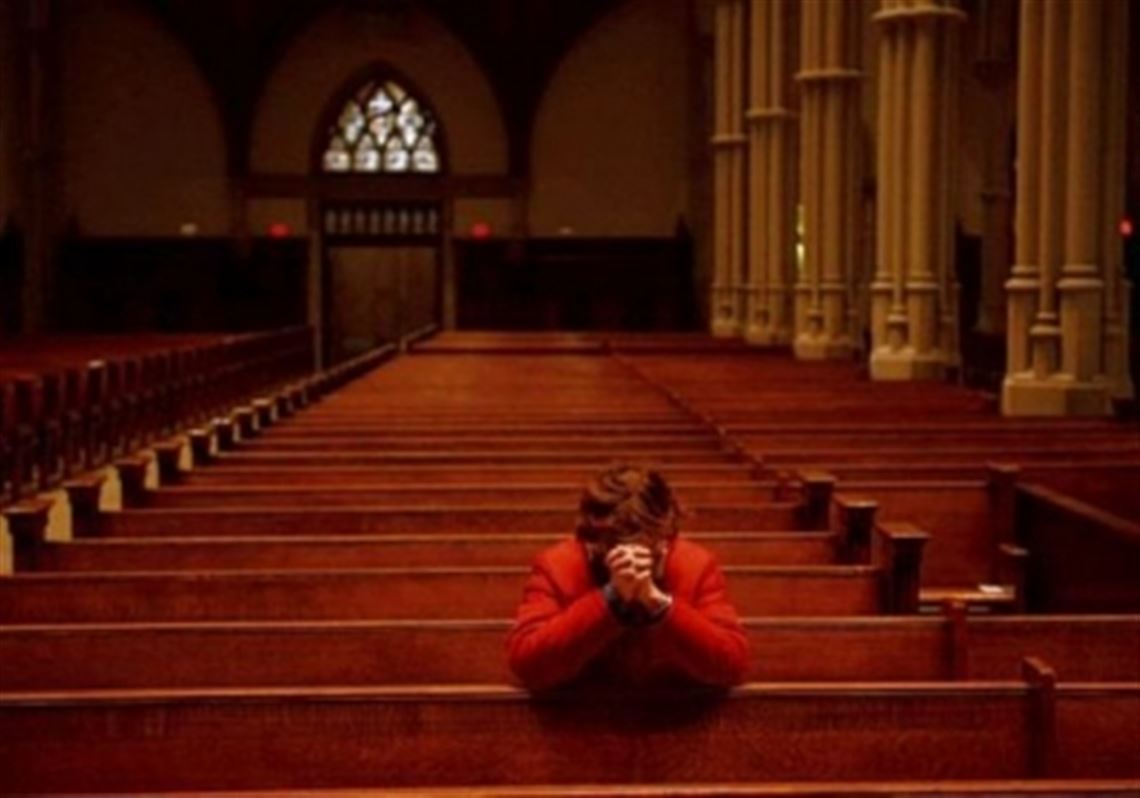This story was reported by Timothy McNulty, Mary Niederberger, Sean Hamill, Joe Smydo, Michael A. Fuoco and Ann Rodgers in Rome.
The election of Argentinian Jorge Bergoglio drew praise across Western Pennsylvania and from Western Pennsylvanians who were in Rome, who also were enthusiastic about the new pope's chosen name: Francis.
Nicholas Cafardi, a canon lawyer and dean emeritus and professor at Duquesne University School of Law, said he was a bit surprised at the choice of Jorge Bergoglio because the decision was made so quickly. "I personally thought that since it was such a quick conclave that it would be Angelo Scola."
However, Mr. Cafardi said he believes the conclave's choice is an attempt to reach out to South America, which has the largest number of Catholics in the world.
"It certainly says to me that the cardinals are concerned with the church in Latin America and want to reach out. It's where the largest number of Catholics are concentrated right now, but it's also a part of the Catholic world where they are losing members to evangelical and Protestant churches."
The pope's age indicates the cardinals "don't want a long pontificate."
"It's thought by some that the power is so immense it ought not to be in anyone's hands for too long a period of time," Mr. Cafardi said.
Mr. Cafardi pointed out that as a Jesuit, the new pope would have taken a vow of poverty. Also as a Jesuit he is among an order "known for their intellectual rigor. They are not afraid of new ideas."
"I think it's interesting that he is our first Jesuit pope and yet he chooses the name of Francis, who is known for his love and concern of the poor. There's a message there," Mr. Cafardi said.
Mr. Carfardi said the new pope has long been popular among those he worked with and has previously been elected to leadership positions, including the head of the Argentinian Bishops Conference and his election as president of the Jesuits in Argentina.
As the first pope from the Western Hemisphere went to the balcony of St. Peter's Basilica and took the name of the world's most beloved saint, Michael Conway knew more about that name than about the new pope from Argentina.
"A Jesuit taking a Franciscan name. That's something," he said.
In Argentina, Cardinal Bergoglio, 76, was known for taking the bus to work like common people and for having exchanged his bishop's mansion for a humble apartment.
Throughout the worldwide church, St. Francis of Assisi stands for simplicity, love, humility and preaching the gospel.
"Christ told Francis to 'Rebuild my church,' " said Mr. Conway, a seminarian for the Catholic Diocese of Pittsburgh, who is studying in Rome. During a time when many people had lost faith in a church whose clergy and hierarchy seemed out of touch with the common people, Francis preached the gospel far and wide, in a compelling, entertaining way.
"The famous quote from Francis is 'Preach the gospel always. When necessary, use words,' " Mr. Conway said.
He believes that taking the name means that "In a world that is getting as secular as ours is, you need someone who's not afraid to bring the truth."
Thomas Schluep, another Pittsburgh seminarian in Rome, said he prayed for the new pope during the hour while the crowd waited to find out who he was. He believed that the Holy Spirit would send "exactly the man that we need."
He was struck that the new pope's first words were simply "Brothers and sisters, good evening."
"He had a very casual attitude. After that, the first thing he asked everyone to do was to join him in prayer for Pope Benedict and then for himself."
Msgr. John Kozar, a Carrick native and Diocese of Pittsburgh priest who has been on loan to missionary organizations for about 12 years, said he briefly met the future pope during a 1996 mission congress in Argentina.
He said the pope combines pastoral and management expertise and set a humble example by taking public transit and living sparingly in Buenos Aires. He said he also was impressed by the pope's bow and simple greeting to the crowd in St. Peter's Square and by his selection of the name Francis.
"There is a freshness to it. There is a newness to it. Maybe this is a sign of what his pontificate will be," said Msgr. Kozar, who is executive director of the Catholic Near East Welfare Association, which was founded by Pope Pius XI in 1926 to provide humanitarian assistance to Eastern Catholic churches.
Msgr. Kozar said his work will bring him into contact with the new pope, perhaps as early as June. He said the selection of a Latin American pope reflects how important that part of the world is to the church.
"It's already important, and it continues to grow," he said.
The Rev. Terence Henry, president of Franciscan University of Steubenville, said with the former cardinal's working-class background, "I really think the hallmark of this pope's papacy is going to be outreach to the poor and challenging the church not to leave its little ones behind."
As the leader of a Franciscan school, Father Henry also said "I'm very happy the new pope chose the name Francis."
While he took his name from St. Francis of Assisi, it also honors St. Francis Xavier, the Jesuits' co-founder.
Sister Janet Mock, the executive director of the Leadership Conference of Women Religious, the nation's largest group of nuns, said the new pope has her prayers and her support.
"I was very touched by his opening words and look forward to him really moving the church forward in a very positive way," she said.
Sister Mock, a Sister of St. Joseph who formerly lived in Baden but now resides in Washington, D.C., said the unprecedented choice of a pope from the Americas "is highly significant. It's wonderful, it's terrific. To recognize the voice of Latin America is very, very powerful."
She said Pope Francis' gesture in asking the people in St. Peter's Square for their blessing before he gave them his "was a great sign of mutuality and I'm very encouraged by that. I'm very touched by his presence and encouraged."
Judy Jones, the Midwest associate director for the Survivors Network of those Abused by Priests, said the organization did not know much about Pope Francis or his views on the issue of child sex abuse.
"We do not believe there's any cardinal in the conclave who was not part of this scandal in some way, that they were directly involved, or helped cover it up, or they were aware of child sex abuse crimes," she said.
Now that Pope Francis has been elected to the post, "We, as victims, hope the pope acts immediately and shows the world that the abuse of children will be dealt with," said Ms. Jones, who is involved in SNAP as a result of a family member and several relatives who were abused by clergy in a parish in southeastern Ohio.
What they hope for, she said, is "action, not words."
"We've had words, and sorrys. We haven't had decisive action from the pope," she said.
For example, she cited the case of Bishop Robert Finn, head of the Kansas City-St. Joseph diocese. In 2011, he became the first Catholic priest convicted of a crime for failing to report a priest suspected of child sex abuse.
He was put on probation and didn't go to jail, but, Ms. Jones said, "he's still running the diocese there; Pope Benedict did nothing and [Bishop Finn] should have been removed."
"We hope the pope removes" Bishop Finn, among other actions, she said.
First Published: March 14, 2013, 8:00 a.m.














